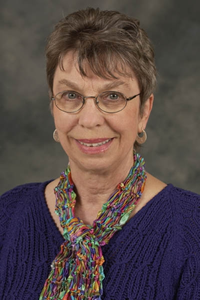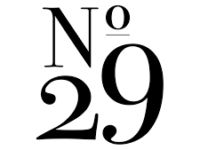Jennifer Senter ENT 601 – SME Interview
February 5th, 2016
Dr. Sharon Dole, Ph.D
Professor of Special Education
School of Teaching and Learning
College of Education and Allied Professions
Western Carolina University
Phone: 828-227-3282
Email: dole@email.wcu.edu
Office Address: 203C2 Killian Building
Dr. Sharon Dole is a strong advocate for education. She has been active in her pursuit of meeting the needs of students from diverse backgrounds and learning styles. Her passions lie in online course design, online collaboration, twice-exceptional students, bibliothereapy, videotherapy, creativity and differentiation of instruction. The key is differentiation of instruction. As educators we are to not only differentiate instruction for the struggling student, but we must meet the needs of the academically gifted student as well.
Interview:
- Is there a definition of “gifted”? There is a federal definition but states that have gifted programs are not required to use it, although most states have adopted some form of the federal definition. The federal definition from the Marland Report that was first written in 1972 has been revised several times. As of 2007 the federal definition is the following:
Children and youth with outstanding talent perform or show the potential for performing at remarkably high levels of accomplishment when compared with others of their age, experience, or environment. These children and youth exhibit high performance capability in intellectual, creative, and/or artistic areas, possess an unusual leadership capacity, or excel in specific academic fields. They require services or activities not ordinarily provided by the schools. Outstanding talents are present in children and youth from all cultural groups, across all economic strata, and in all areas of human endeavor.
The definition for North Carolina is as follows:
Academically or intellectually gifted (AIG) students perform or show the potential to perform at substantially high levels of accomplishment when compared with others of their age, experiences or environment. Academically or intellectually gifted students exhibit high performance capability in intellectual areas, specific academic fields, or in both the intellectual areas and specific academic fields. Academically or intellectually gifted students require differentiated educational services beyond those ordinarily provided by the regular educational program. Outstanding abilities are present i students from all cultural groups, across all economic strata, and in all areas of human endeavor.
2. How many gifted children are there in the U.S.? It is difficult to determine how many children are in gifted programs in the U.S. because the federal government does not require gifted programming and some states do not even have gifted programs. The National Association for Gifted Children estimates that 6-10% of the student population or 3-5 million children are identified and in gifted programs. The number of identified gifted students in NC in the 2014-15 school year was 180,477 out of a total student population of 1,470,127.
- Who make decisions about gifted students’ experiences in school? Decisions about gifted programming and curriculum are made at the state and local levels. In North Carolina, each school system is required to submit an AIG plan to DPI every 3 years.
4. What are the different ways gifted students are served in the classroom? There are many ways that gifted students can be served, including the following: grade or subject acceleration, full time gifted programs, part time pullout, and curriculum compacting in the general education classroom. Gifted students are also served in International Baccalaureate programs, Advanced Placement classes, special schools (for example, NC School of the Arts), and dual enrollment in high school and college.
5. How do I know if a gifted program is of high quality? Some school systems have outside evaluations done on their gifted programs but this is not a requirement in North Carolina. Many school systems conduct surveys of parents. For example, Asheville City Schools has done this. Parents and teachers can look at the state standards on gifted education and compare them with what is being done in their school system’s gifted program.
6. What kind of training do teachers need to work with gifted students? In states that have gifted programs, teachers are required to be licensed in gifted education. The licensure program can range from 12-15 hours. In North Carolina, teachers are required to complete a university gifted education program of 12 hours in order to teach gifted students. However, there are no requirements in North Carolina for general education teachers to have gifted certification, although in most school systems gifted children spend most of their time in general education classrooms.
7. How much does the federal government spend on gifted education? There are no federal funds directly available for gifted programs. The only funding available is the Jacob Javits grant, which is a competitive federal grant.
8. Do the Common Core State Standards address the needs of gifted students? The Common Core standards were written for all students so it would be necessary to extend them for gifted students. The National Association for Gifted Students provides resources for extending the Common Core standards.
9. How much money is spent on gifted education? In North Carolina $77,880,694 was spent during the 2014-15 school year on gifted education.
10. Are there national reports about gifted students or gifted education? There have been no federal reports specifically on gifted education but both A Nation at Risk (1983) and National Excellence: A Case for Developing America’s Talent (1993) called for more programming for gifted students. A Nation Deceived (2004), while not a federal report, highlighted the advantages of acceleration.
11. What are the most common myths confronted by supporters of gifted and talented education?
I strongly agree with the common myths listed by the National Association for Gifted Children:
- Gifted students will do fine on their own; they do not need help.
- Teachers challenge all students so gifted students will do just fine in the general education classroom.
- Gifted students make everyone else in the classroom smarter by providing role models.
- All children are gifted.
- Acceleration is socially harmful for gifted students.
- Gifted education programs are elitist.
- A student who receives poor grades cannot be gifted.
- Gifted students are happy, popular, and well adjusted in school.
- A child with a disability cannot be gifted.
- Our district has a gifted program because we have AP courses.
- Gifted education requires an abundance of resources.
- I would like to thank Dr. Dole for agreeing to the SME interview. It has been a pleasure.
- The future of gifted education lies within the educators themselves. We as teachers need to learn to recognize and meet the various needs of these talented students. Under the tutelage of Dr. Dole I have gained knowledge in how to do just that.
[d1]makes



